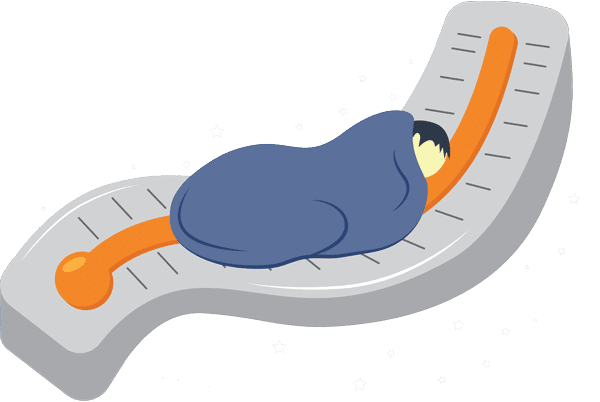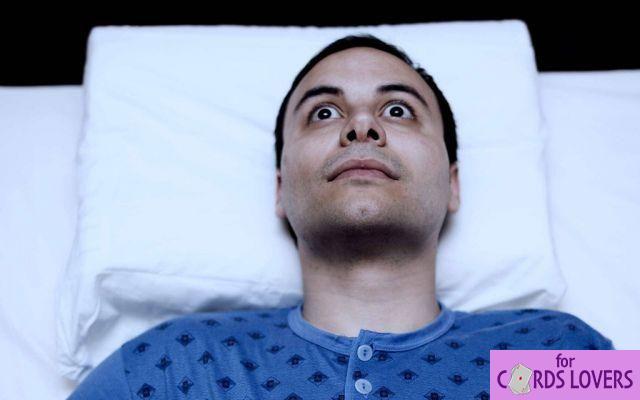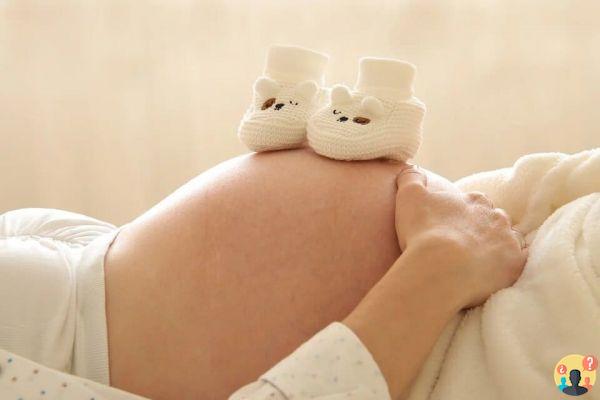
There are few days of the year when the ideal temperature for sleeping is naturally present. In the summer we can spend hours spinning around as if trying to find the coolest spot in bed. In the winter, the sheets seem to have kept the cold out waiting for us to arrive at night so that we have no choice but to roll our bodies with the intention of maintaining body heat. If we also share a bed, we can almost guarantee that we won't agree with each other on the perfect features.
Inadequate temperature interferes with sleep. This has been shown by research conducted by the Tohoku Fukushi University Research Center in Japan, which concluded that " the thermal environment is one of the most important factors of sleep". Unsuitable temperatures can increase wakefulness and decrease the time of the different phases of sleep.
Dr Ralph Downey, head of sleep medicine at Loma Linda University (USA), also told the WebMD health portal: "In an uncomfortably hot or cold room, it is easier for us to wake up." But what is the ideal temperature for sleeping?
The ideal temperature for sleeping: Room and body
The answer to this question seems to vary by a few degrees on the thermometer. Some experts advocate cooler temperatures. This is the case of Dr. Michael Breus, a psychologist specializing in sleep problems, who maintains in his book that the piece must be understood between 15 and 18 degrees for a good rest. Others, like Dr. Ralph Downey, assert that the general recommendation establishes as correct a range between 18 and 22 degrees.
This theory also includes Dr. Eduard Estivill, director of the sleep clinic (Barcelona), who assures that "there is enough consensus in the medical community to consider that the 22 degrés medium is the ideal temperature for sleeping". Of course, both clarify that it doesn't have to be exact. The reality is that although we try to bring our bedroom to this level of perfection, room temperature is not the only factor that influences sleep.
Our body also plays an important role. “Body temperature follows a circadian rhythm, this means that at around 10 or 11 p.m. our outside temperature increases by half a degree and stays that way overnight. can stay awake", explains Dr Estivill. Our skin needs to be "around 36,7 degrees" to sleep well.

Women lose heat in the limbs
The thermal sensation can also change depending on our gender. "The women lose more heat than men due to factors such as hormones, small body size and a lower metabolic rate", explains Óscar Sans, member of the Spanish Sleep Society (SES) and medical director of the AdSalutem Sleep Medicine Institute: "They have less muscle mass (which helps generate heat) and, additionally, tend to feel colder when on their period."
However, women maintain a better body temperature. In other words, the one inside the body. Without specifying that “the cause of this physiological difference could be due to reproductive reasons, in order to better maintain the heat of a developing fetus. In this way, when the sensation of the environment wanes, a woman's circulatory system diverts blood from her skin and extremities to the inner core, leaving extremities cooler."
To make matters worse, menopause also affects sleep. “Due to all the changes in body temperature and the circadian temperature cycle,” Dr. Sans continues, “hot flashes occur, which makes it harder for them to sleep.”
Children's pajamas make the difference
Nor is the perception of cold in adults the same as in children. "They have more tolerance for the outside temperature," says Estivill. "It is therefore strongly recommended that young children sleep in pajamas. As they move around a lot at night, it is normal for them to be covered."
To try to combat all these factors that prevent us from resting and get as close as possible to the ideal temperature for sleeping, the experts have some advice.

Expert advice on the ideal temperature for sleeping
The best thing you can do to get the perfect sleeping temperature is to try to give everyone your space and avoid human contact when you fall asleep or buy a bigger bed. Although you don't need to sleep on the edge of the bed either. Research carried out by psychologist and professor at the University of Hertfordshire (United Kingdom) Richard Wiseman has concluded that sleeping close to each other, in addition to giving warmth, leads to happiness: couples who sleep less than 2,5 centimeters apart is more happier.
Thus, the best way to avoid arguments is, as the SES expert puts it, "to agree on an ambient temperature halfway between the different expectations". And if there is no agreement, the person who is warmer can put on less warm pajamas or choose the warmest part of the room to sleep.
Some materials give off more heat than others. In fact, the firmness of the mattress can be decisive in finding the ideal temperature for resting. This is explained by the SleepLikeTheDead website, which is dedicated to analyzing and rating mattresses and pillows on the market: "Because a person sinks a little into a soft mattress, thethe amount of air circulating is less and increases the heat. “On the contrary, by sleeping on a firm mattress, we do not sink and we perceive the air better.
And while it may feel more uncomfortable, a Japanese survey found that inflatable mattresses also help lower body temperature.
There are almost as many optimal materials as there are people,” says the SES expert. “Silk keeps you warm because it is an insulating material, which absorbs moisture and evaporates it. . Cotton has a great ability to absorb moisture from the environment and is a soft and comfortable material. The hollow fibers are breathable filaments that are particularly ready to offer a balanced temperature during the night's rest. Wool, on the other hand, offers filaments that prevent heat exchange and maintain a stable thermal sensation. "
Finally, there are those who can't stand going to bed if they aren't barefoot and those who can't fall asleep if they don't have their socks on. The reason is in our brain. “There are people who have trouble starting to sleep, and if you ask them if they have cold feet, they say yes.
This is precisely why hot water bottles and other gadgets were invented, explains this expert: "Once the feet are warmed up, the body no longer needs them and that's when people take them out of duvet or simply take off their socks" According to the National Sleep Foundation, when our feet are warm, the veins expand and heat spreads throughout the body.


























